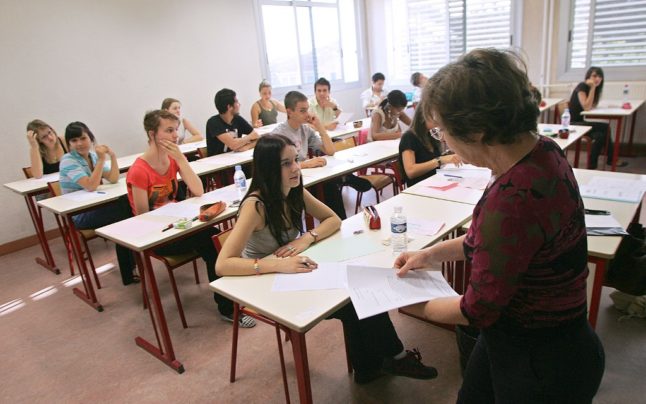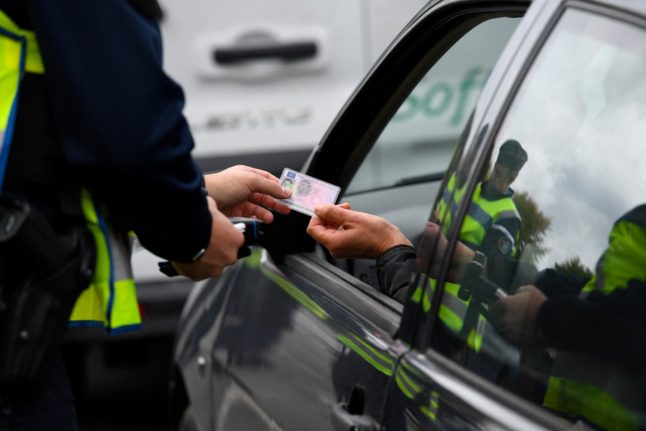What is an ‘international section’
Essentially international sections in French secondary schools allow students to learn a modern foreign language, such as English or German in much more depth than a standard state secondary. These sections also facilitate the integration of foreign students into the French school system.
There are about 200 ‘International’ establishments (primary schools, colleges and high schools) around France offering international sections in 16 languages.
Most are state run, so for many foreign families they are a much cheaper alternative to private schools, though it should be noted that some of the international sections are fee-paying.
READ ALSO
- International v French school – how to decide
- Strict but a holistic education – how the public school system in France works
- Fees to class sizes – what you need to know about French private schools
Even state establishments can charge for enrolment into their international sections. Fees are usually in the region of €1,000 to €2,000 per year (although that’s still cheap compared to somewhere like the American school of Paris which charges between €20,000 and €35,000 a year)
American and British sections are particularly popular – and, as a result are usually the most expensive, while less-popular German sections are less costly.
Why do they exist?
These sections are ideal for the children of immigrant families, as well as those where one parent is of foreign origin. Syllabuses are set up and developed by French educational authorities and those of the partner country.
In addition to lessons dedicated to modern languages, students benefit from lessons in another subject given in a foreign language. The international sections promote the discovery of the culture and civilisation of the countries associated with the section.
Top tips for raising a bilingual child in France
What languages are available?
According to the government website, 19 languages are available. But that’s not strictly accurate as it then lists American, British and Australian as separate ‘languages’, along with Portuguese and Brazilian. It’s more accurate to say these establishments offer education in 16 languages.
It’s more accurate to say that there are 19 “sections”, dedicated to learning with a linguistic and cultural education slant in favour of the following nations/languages:
American, Arabic, Australian, Brazilian, Chinese, Danish, Dutch, English, Franco-Moroccan, German, Italian, Japanese, Korean, Norwegian, Polish, Portuguese, Spanish, Swedish, Russian.
In total, there are two Australian schools, 20 American ones, over 50 British schools – most in Paris and the Ile-de-France (Versailles is very popular)
So, what’s studied – and what qualifications do you get?
As well as usual collège-level classes in core subjects, such as maths, history and the sciences, students have four hours of classes in the language, including literary studies, of their choice.
From troisième (age 14), an additional two hours of classes per week cover that country’s history and geography and moral and civic education – the latter is replaced by maths for those studying in Chinese sections.
They can obtain the diplôme national du brevet with the mention “série collège, option internationale”. The dedicated brevet includes two specific tests: history-geography and foreign language.
At lycée, students study four hours of foreign literature per week, as well as two hours of history-geography in the language of the section (maths for the Chinese section) as well as two hours of French as they study towards an OIB (option internationale du bac), often at the same time as a standard French bac.
How to enrol
The first step is to contact the collège you wish your child to attend. This should take place no later than January before the September rentree you want your child to go to the collège.
If you live in France, and your child is attending an école primaire or élémentaire, you should do this in the January of the year they would move up to collège.
Be aware, that some schools require potential students to pass a language test – written and oral – before they can enter an international section. A child wishing to enter sixth grade must be able to read books of the level of Harry Potter in English, to enter the international school of Sèvres’ British section, while another has said that only 20 percent of candidates achieve the grade that would allow them entry into an international section.
Find a school
You will find sections internationales de collège at educational academies across the country. For a full list, with contact details, click here.



 Please whitelist us to continue reading.
Please whitelist us to continue reading.
Member comments